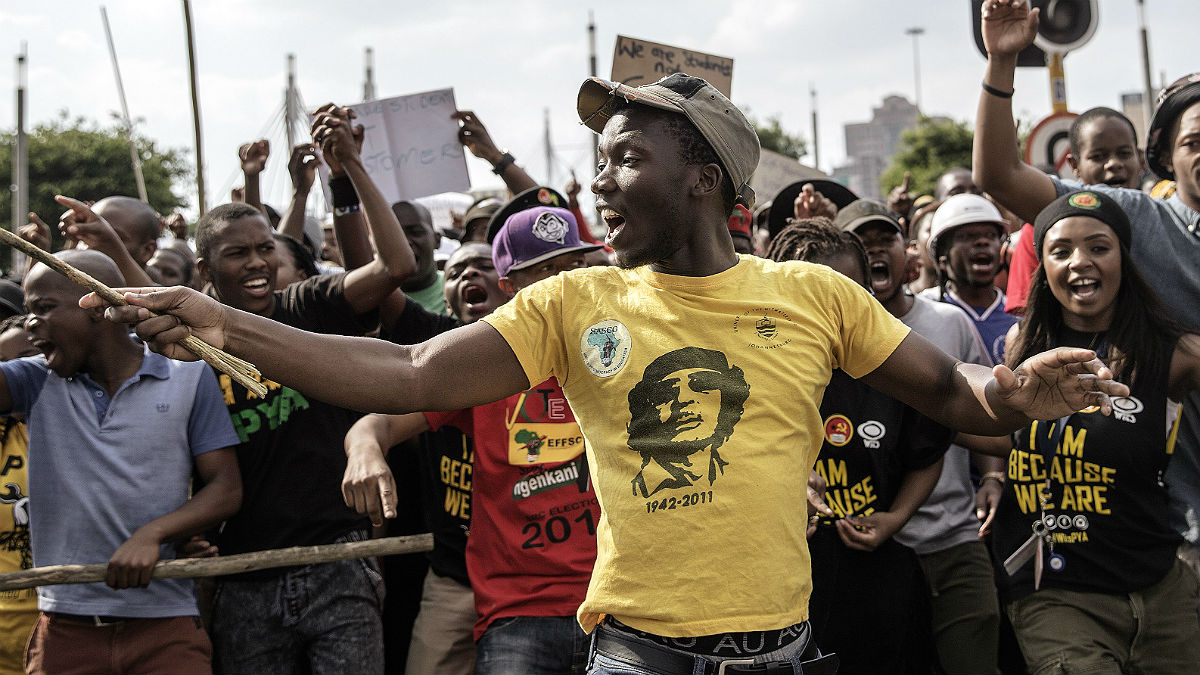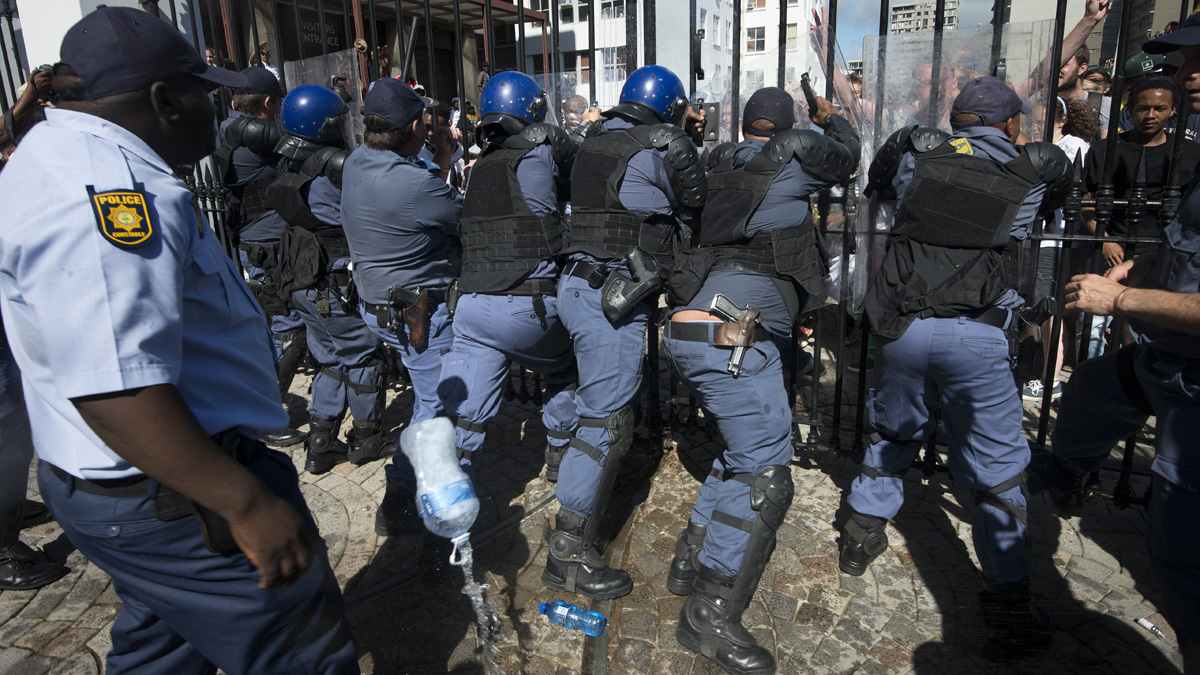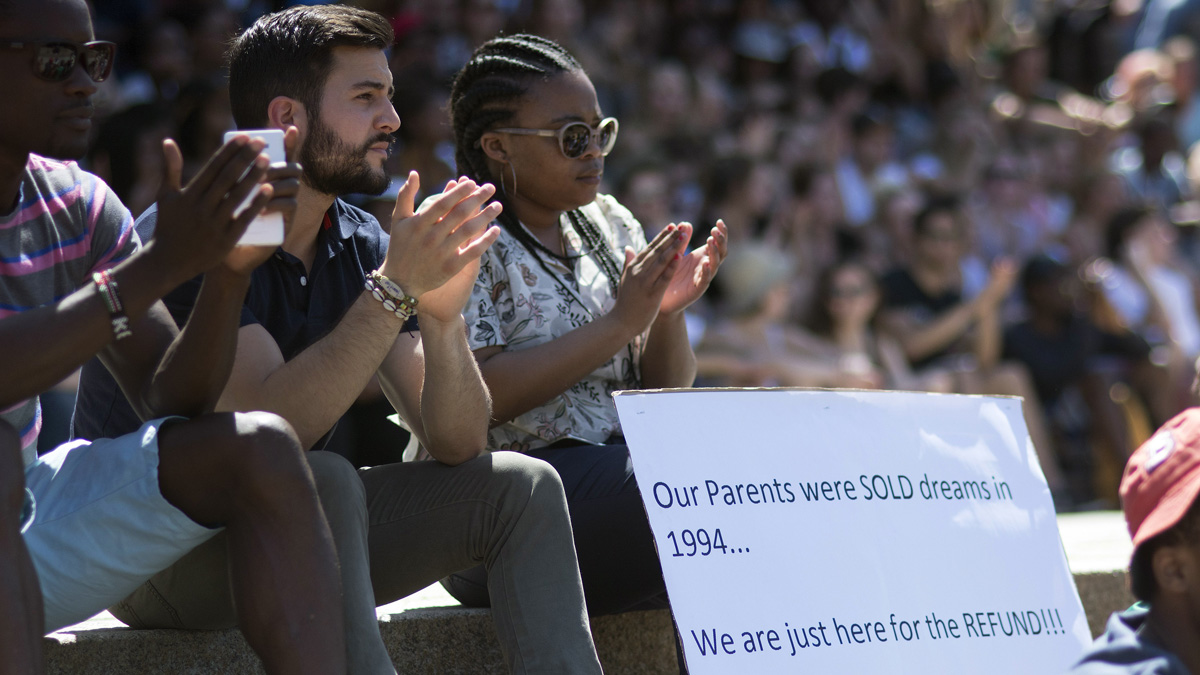South African students celebrate as Zuma bows to their demands
Government halts plans to increase university fees, which sparked more than a week of nationwide demonstrations

A free daily email with the biggest news stories of the day – and the best features from TheWeek.com
You are now subscribed
Your newsletter sign-up was successful
The South African government has axed plans to increase university fees next year, in a major victory for the thousands of students who have taken part in protests across the country.
President Jacob Zuma announced the decision at the Union Buildings in Pretoria, where crowds had gathered in the culmination of more than a week of demonstrations against the planned price hike.
Universities had proposed increases of up to 11 per cent, which protesters argued were reminiscent of apartheid policies as they would deny poorer black students access to higher education.
The Week
Escape your echo chamber. Get the facts behind the news, plus analysis from multiple perspectives.

Sign up for The Week's Free Newsletters
From our morning news briefing to a weekly Good News Newsletter, get the best of The Week delivered directly to your inbox.
From our morning news briefing to a weekly Good News Newsletter, get the best of The Week delivered directly to your inbox.
The president's announcement followed a high-level meeting with university and student representatives, who raised further long-term issues. "These include free education, institutional autonomy, racism and what the students call 'black debt'," said Zuma. "Discussions will continue looking at [these] broader issues."
Students took to social media to celebrate the news with the #FeesHaveFallen hashtag:
You weren't just fighting for yourself but for generations to come _ we thank you, Youth of 2015 #FeesHaveFallen pic.twitter.com/JowXgpO3vq— WOLF (@lethabosoul23) October 23, 2015
My fellow students, we have been victorious and shown we will fight for ourselves and our future generations! #feeshavefallen — Tegan Ashleigh Kelly (@Ashsky_kelly) October 23, 2015
#FeesHaveFallen HOORAY! VIVA STUDENT MOVEMENT! VIVA STUDENT POWER! ABASH CORRUPTION! ABASH DEHUMANIZATION! VICTORY! pic.twitter.com/VJZDPS8ABo — Victor Kanyense (@VictorKanyense) October 23, 2015
This is proof that we have the power to make a difference, we must never let the government bully us! #FeesHaveFallen — Jarred Hart (@Jarred_Hart) October 23, 2015
But some argued that there was still a long fight ahead:
Even though the battle was won I feel like we lost it. Until education is free there's a lot to do #FeesHavefallen — Jonas (@duke_kdj) October 23, 2015
We are sharpening our blades, the battle is won, not the war! #FeesHaveFallen— Irfaan Mangera (@IrfaanMangera) October 23, 2015
Why South African students are shutting down their universities
21 October
A free daily email with the biggest news stories of the day – and the best features from TheWeek.com
Thousands of South African students have broken through the gates of parliament in Cape Town as part of nationwide protests against tuition fee increases they say hark back to the Apartheid era.
Riot police fired stun grenades, rubber bullets and tear gas at students from the University of Cape Town and the Cape Peninsula University of Technology stormed the parliament precinct.

Protesters were trying to disrupt the interim budget speech of the finance minister, Nhlanhla Nene, marking the latest in a series of angry protests against fee increases of up to 11 per cent planned for next year.
The demonstrations began last week at the University of Witwatersrand after the institution announced that it would be increasing tuition fees and demanding up-front payment from students.
They have since spread across the country and the influential South African Students Congress (Sasco) has called for "mass action" and a nationwide shutdown of all the country's universities.
Protesters are calling on the ruling African National Congress (ANC) to honour its pledge to provide free education when it took control of the country after the historic 1994 election.

Students and professors alike argue that the price hikes are reminiscent of apartheid policies and amount to racial discrimination as they will deny poorer black students access to higher education.
"This is the bastion of apartheid," students outside parliament told the South African Mail and Guardian. "The Broederbond [Afrikaner brotherhood] must fall."
The wave of protests have been likened to the 1976 Soweto uprising, when hundreds of thousands of black high school students marched against the introduction of apartheid education laws.
One lecturer told the Daily Telegraph: "Many of my students really are on the breadline. It really does exclude people."
Universities have defended the increases, blaming a decline in government subsidies and increases in the cost of infrastructure, as well as the dramatic depreciation of the South African rand.
The government has held crisis talks in response to the unrest and offered to cap tuition fee increases at six per cent. The offer was immediately rejected as students said it did not go far enough.
"2015 may well go down in South African history as the year of the student," writes Sibusiso Tshabalala for Quartz Africa.
"From the March #RhodesMustFall protests against public monuments and universities, to the current protests over university fees, South African students are finding their voice."